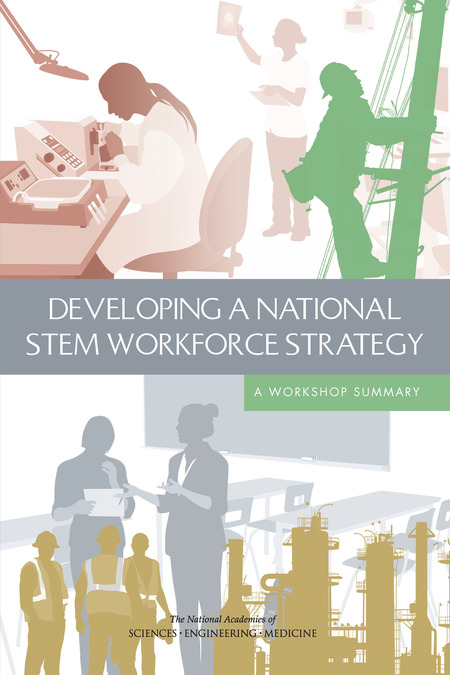Developing a National STEM Workforce Strategy: A Workshop Summary
The future competitiveness of the United States in an increasingly interconnected global economy depends on the nation fostering a workforce with strong capabilities and skills in science, technology, engineering, and mathematics (STEM). STEM knowledge and skills enable both individual opportunity and national competitiveness, and the nation needs to develop ways of ensuring access to high-quality education and training experiences for all students at all levels and for all workers at all career stages.
The National Science Foundation (NSF) holds a primary responsibility for overseeing the federal government’s efforts to foster the creation of a STEM-capable workforce. As part of its efforts in this endeavor, NSF’s Directorate on Education and Human Resources asked the National Academies of Sciences, Engineering, and Medicine to convene a workshop that would contribute to NSF’s preparation of a theoretical and evidence-based STEM Workforce Development R&D Core Framework. Participants discussed research themes, identified gaps and emerging research opportunities, and recommended refinements in the goals of the framework. This report summarizes the presentations and discussions from the workshop.
Related Posts

article
The STEM Labor Force of Today: Scientists, Engineers, and Skilled Technical Workers
Individuals in the STEM workforce make important contributions to improving a nation’s living standards, economic growth, and global competitiveness. They fuel a nation’s innovative capacity through their work in research and development (R&D) and in other technologically advanced activities, collectively referred to as the science and engineering (S&E) enterprise. The goal of this report is to provide information about the STEM workforce that enables insight into how the U.S. S&E enterprise is positioned to meet the needs of and compete in an increasingly technologically advanced economy, both nationally and internationally.
